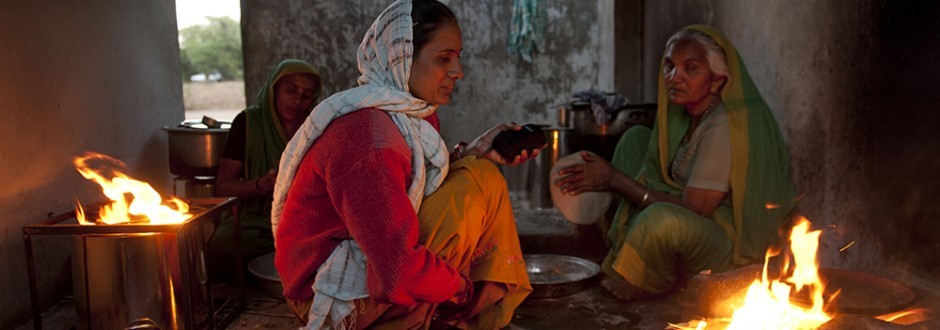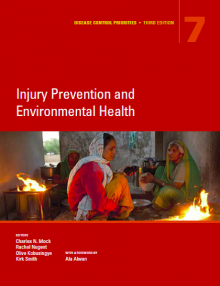
Photo credit: Romana Manpreet, Global Alliance for Clean Cookstoves
Key Messages

Menu


As many as 7.5 million deaths from injuries, occupational exposures, and environmental risks could be averted annually with better implementation of effective interventions and policies.
Patterns of injury- and environment-related risk evolve predictably with economic growth. Rapidly-developing low- and middle-income countries could avert a large burden of disease by pre-emptively implementing interventions such as the ones described in this volume.
Several interventions included in the DCP3 essential package have beneficial effects for a variety of conditions. For example, violence prevention strategies can reduce substance abuse, improve mental health conditions, and reduce crime-related injuries. Air pollution control can reduce the risk of both respiratory and cardiovascular diseases, among others.
Implementation of most of the policy interventions included in the essential packages will require intersectoral collaboration and cooperation, including ministries responsible for finance, law enforcement, environment, planning, development, labor, and transportation.
In 2012, estimated 842,000 global deaths were attributed to poor water supply, sanitation, and hygiene. These diseases have been shown to affect children’s nutrition, growth, and mental development. While trends in mortality are positive, many low-income and rural middle-income settings lag behind the rest of the world in addressing these highly preventable deaths.